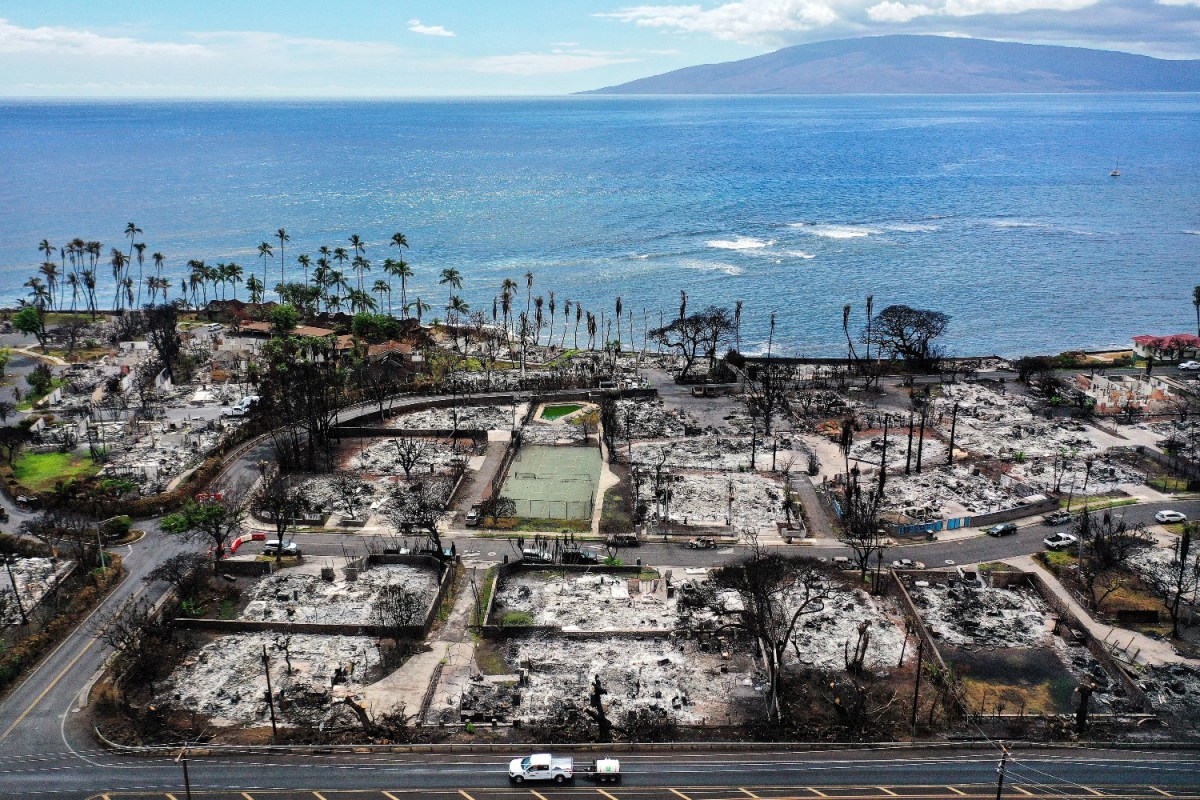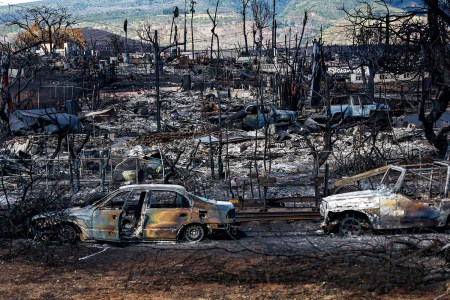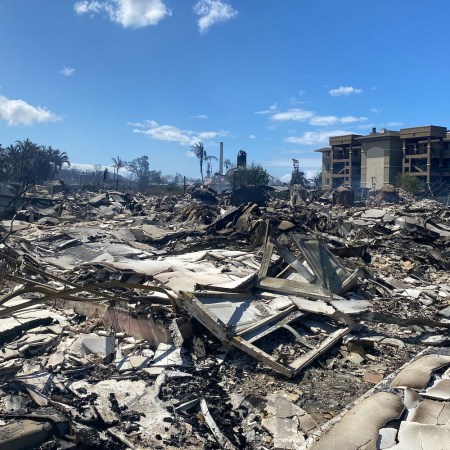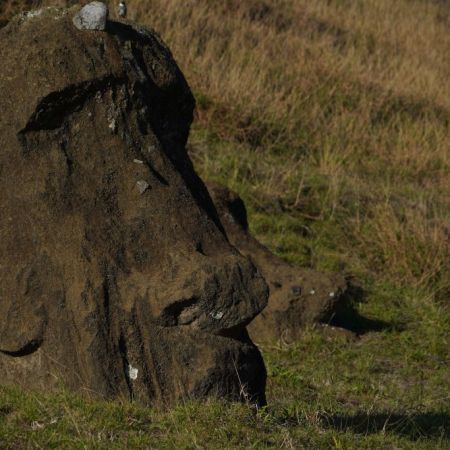In August, wildfires in Lahaina killed dozens, destroyed numerous homes and left the landscape devastated. The Maui wildfires were a shocking moment for residents and outside observers alike, transforming an idyllic part of the world into something resembling a scene from a Hieronymus Bosch painting. It’s been almost three months since those tragic events took place, and as the community in Maui works to recover, part of those efforts include an uneasy question: what do the fires and their aftermath mean for preventing future disasters like this?
That’s one of the big questions that emerges from an expansive report by Carolyn Kormann at The New Yorker. Kormann visited Lahaina in the wake of the wildfires and spoke with people who were deeply involved with the efforts to mitigate the fires’ damage — and who have been working to rebuild their community.
Kormann’s article is a gripping tale of disaster, heroism and loss — but the scenes of devastation that the fires caused are only one of the reasons her reporting might leave you unsettled. Based on her reporting, the aftermath of the fires sounds like a case where plenty of people agree that steps need to be taken to improve a response to future fires — but no one’s entirely clear on what that response should be.
The article cites the CEO of one real estate company alluding to “this stupid climate-change thing” and arguing that the disaster was due to the challenges of water commission codes. Kormann also writes that some have sought to blame the region’s power company for emphasizing renewable energy, arguing that maintaining the existing power systems might have led to the fires doing less damage.
Why Are Government Officials Encouraging Tourism to Maui Right Now?
“Maui is not closed.”Congress has held hearings on the fires and their aftermath — but it’s also worth pointing out that the possibility of wildfires has loomed over the region for a while. A year ago, Fodor’s pointed to water inequality in Maui as a reason why travelers should reconsider their plans to visit it. Tourism, climate change and local policies all factored into August’s tragedy — but in a perfect world, they would also inspire leaders and stakeholders to take steps to prevent something like this from ever happening again.
This article appeared in an InsideHook newsletter. Sign up for free to get more on travel, wellness, style, drinking, and culture.



















